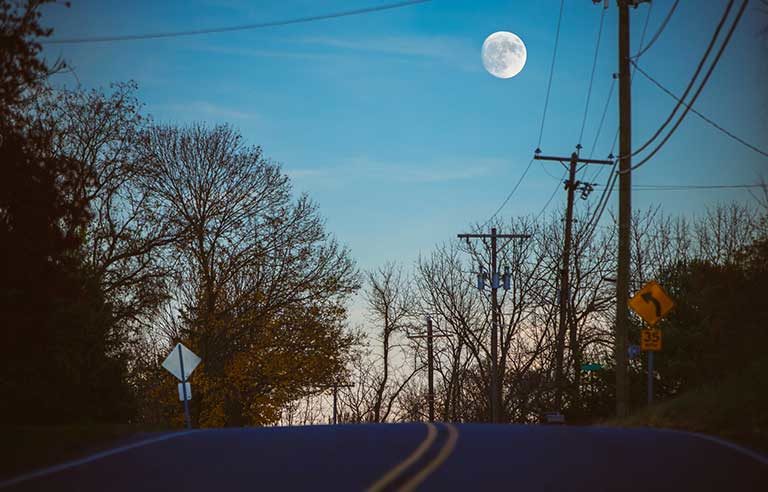
Photo: Jena Ardell/gettyimages
College Station, TX — Workers who drive at night, take note: Vehicle-wildlife collisions may be almost 50% more likely to occur during a full moon, results of a recent study suggest.
Researchers at Texas A&M University analyzed 10 years of Texas collision data against lunar phases. They found that vehicle-wildlife collisions increased 45.8% during a full moon compared with a new moon, and were more likely to take place in rural areas.
“No statistical difference” in non-wildlife collisions was observed during either phase.
A university press release cites previous studies, conducted worldwide, that have found “similar increased collision trends” during a full moon.
“Although the illumination is better, it’s still nighttime,” Dominique Lord, study co-author and professor of civil engineering at Texas A&M, said in the release. “When you drive at night, I’m not sure the illumination from the various perspectives is so much greater compared to daytime.”
The researchers say the results may “help inform transportation policy and infrastructure improvements where better safety measures are necessary.” They suggest further study into driver fatigue at night as well as heightened animal activity.
AAA offers guidance to help avoid motor vehicle-wildlife collisions:
- Scan the road and shoulders ahead of you.
- Use high-beam headlights if there’s no oncoming traffic.
- If a collision is unavoidable, apply the brakes firmly and stay in your lane.
- Be extra cautious at dawn and dusk, and when traveling through areas with a high and active wildlife population.
The study was published in the journal Transportation Research Part D: Transport and Environment.
McCraren Compliance can help you understand and comply with FMCSA, USDOT and ADOT and ensure your drivers and your vehicles operate safely and efficiently.
Call us Today at 888-758-4757 or email us at info@mccrarencompliance.com to schedule your free FMCSA Compliance Assessment.
Original article published by Safety+Health an NSC publication


